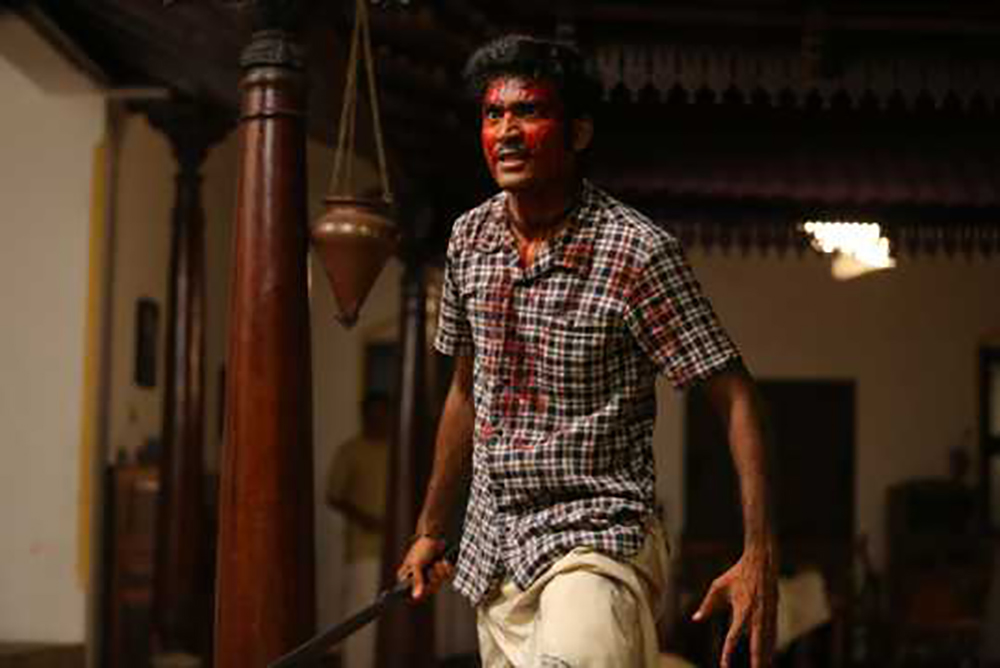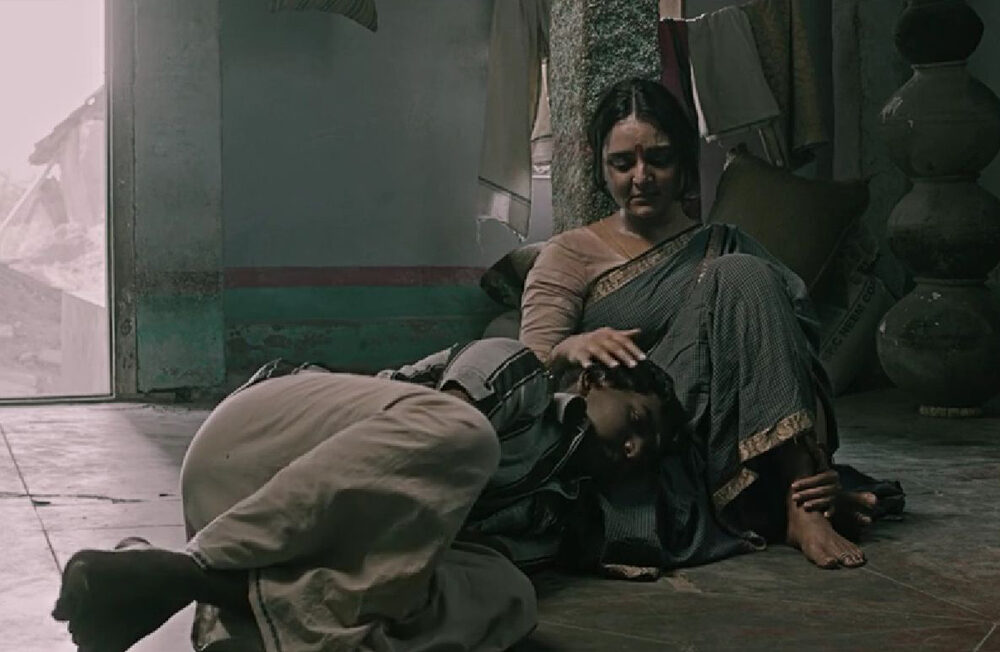After a tragic turn of events in his old village, Sivasamy, a former employee at a brewery who hails from a low caste, attempts to commence life anew as a farmer. However, tragedy strikes the ageing farmer once more; in retaliation for a public humiliation caused by Sivasamy’s elder son, a fuming landlord begins targeting he and his family; this eventually leads Sivasamy’s younger son to take matters into his own hands. Sivasamy doesn’t approve of his son’s decision — which further leads to a rift between father and son; however, still focused on his duties as patriarch he goes to great, violent, and gory extents to protect his kin. This is with or without help from authority figures, whose loyalty can easily be bought by the upper caste.
Treading Familiar Ground on Caste Politics in India
Much like movies such as “Article 15” (2019) or more recently “Jai Bhim” (2021), “Asuran” treads the familiar grounds of caste politics in rural regions of India. While in the former, viewers were enlightened on the same via the perspective of an authority figure or person hailing from the upper class, “Asuran” follows an opposite approach; it instead chooses to highlight caste atrocities unfolding through the lens of the victim(s) themselves.
This works in favour of the movie, as it lends an even deeper and unsettling understanding of this topic. As such, it allows viewers to sympathise with a group of characters who are trying to fight rightfully for freedom. This is freedom from unfair, dehumanising practices, as well as rights that range from something as basic as wearing footwear to owning agricultural land and honour and dignity. There are moments where the film resolves situations rather conveniently; but for a majority of its run-time, “Asuran” remains rooted in a harsh reality from which there’s no apparent escape. It is also a movie that will leave you biting your nails in fear over what horrors lie in store for Sivasamy and his family from those who’ve an upper hand in society, as well as in the eyes of the law.
‘Asuran’ Remains Rooted in the Harsh Reality of Casteism
Dhanush delivers a laudable and convincing performance in “Asuran” as both the young and old Sivasamy. As young, fierce Sivasamy he challenges caste atrocities and holds the culprits accountable; later, as the older Sivasamy, he becomes an alcoholic and a timid shell of his former self as a result of the incomprehensible losses that he faced in his youth. The actor — who has showcased his emotional range brilliantly in movies like the recent “Atrangi Re” — shines again. He expertly navigates scenes that are trying and heart-wrenching. These include the sad realization when he loses somebody close to him in a brutal attack on his village. We also see this later, in a bloody action sequence where he conveys the blind rage that washes over the character as he confronts the culprits behind the same.

Dhanush Shines; Strong Performances All Around ‘Asuran’
Manju Warrier too turns in a strong performance as Pachaiyamal, Sivasamy’s wife; she admonishes her husband for his cowardice while also taking a stand against casteist behaviours and harassment of the family. Ken Karunas, Teejay Arunasalam, and Ammu Abhirami are memorable in their brief but pivotal roles as Chidambaram, Murugan, and Maariyamal respectively. These characters act as catalysts to the tragedies in Sivasamy’s past, and which return to haunt him in the present.
The action sequences are well choreographed and further elevated by a roaring and invigorating background score by GV Prakash Kumar. “The Bloodbath” score that plays during action scenes in particular truly highlights the rage and relentless nature of Sivasamy; its lyrics perfectly convey the message of rising up against atrocities and ostracization.

An Ending That Doesn’t Sugarcoat Injustice
The only slight deterrent was Dhanush’s make-up in scenes to make Sivasamy look older, which wasn’t entirely convincing. Although we must give credit where credit is due. While Dhanush doesn’t quite look the part physically, he does excel at embodying the aging and vulnerable Sivasamy through voice modulation alone. This transcends the need for any physical alterations altogether.
“Asuran” received countless national and international accolades (more recently being screened at the 78th Golden Globes under the ‘Best Foreign Film’ category) and remains fresh in the minds of viewers. This is due to the fact that the grim and ghastly events depicted on-screen are dramatisations of equally grim real-life caste atrocities such as the Dalit Massacre on Christmas Eve in 1968 in Kilvenmani, Tamil Nadu. And with an ending that doesn’t sugarcoat the injustice — nor the obvious outcome of such a clash between castes — “Asuran” might quite possibly be the most realistic movie about caste politics I’ve come across so far.
“Asuran” is currently available to stream or rent from Prime Video, YouTube, and Google Play.
Support the Site: Consider becoming a sponsor to unlock exclusive, member-only content and help support The Movie Buff!


